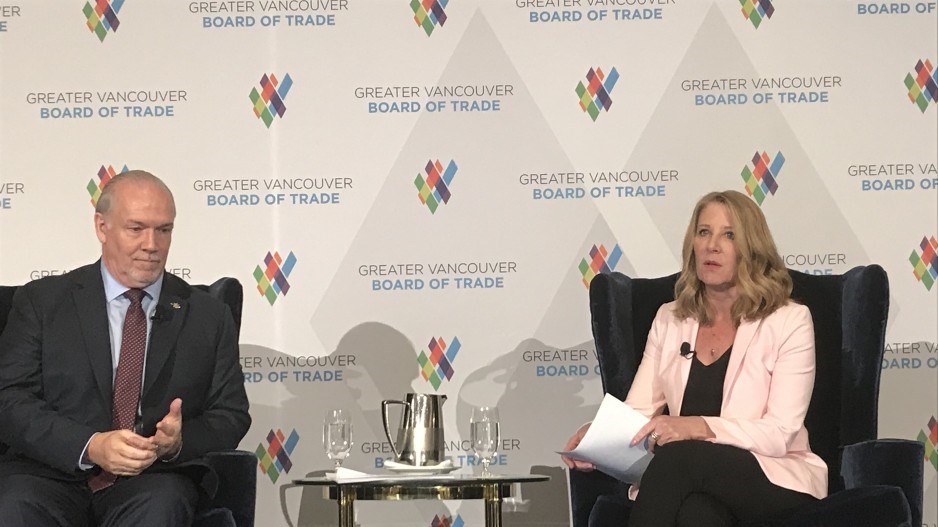The continued economic fallout of the COVID-19 crisis is pummelling Metro Vancouver businesses to the point 26% don’t believe they’ll survive the next 12 months under current conditions.
Survey results released Thursday (October 8) from the Greater Vancouver Board of Trade (GVBOT) and Mustel Group reveal a cloud of anxiety hanging over much of the local economy.
“The impact on our communities, our economy and our downtown core should we lose a quarter of businesses over the next 12 months is almost unthinkable. And whoever wins the election on October 24 will need to act fast to stoke the fires of economic recovery and set B.C. on a course to help the private sector recover,” GVBOT president and CEO Bridgitte Anderson said in a statement, referring to the provincial election currently underway.
While 89% of GVBOT members surveyed feel at least somewhat prepared for any future waves of the pandemic, just 40% expect a return to business as usual once the province stops deferring taxes or else requires businesses to pay up deferred taxes.
Among the remaining 60% anticipating additional strain, more than a quarter (26%) expect to continue operating at reduced capacity and 17% expect to lay off workers.
The survey results were released the same day the GVBOT hosts provincial party leaders through a virtual event, asking them to spell out their vision for B.C.’s economic recovery to the board of trade’s members.
The top election priority among those surveyed is economic recovery (69%), followed by tax competitiveness (23%), health care (19%) and fiscal responsibility (19%).
Respondents were split mostly even on the province’s response to date, with 39% stating the B.C. government is on the right track compared with 35% that believe it’s on the wrong track.
The remaining 26% were unsure about the province’s response.
But GVBOT members were more unified in terms of the region’s prospects for long-term competitiveness: 52% believe the government is on the wrong track compared with 21% that believe the government is on the right track.
The remaining 27% were unsure.
The top priority for economic recovery among GVBOT members is creating more competitive conditions for investment within the province (43%), followed by reducing administrative burdens (41%), providing businesses with financial support (39%) and investing in technology to boost productivity (31%).
Meanwhile, 64% of GVBOT members believe the government should be doing more to provide a vision for the local economy, while 63% wish to see more measures targeting the availability and affordability of housing, and 62% would like to see the government do more in terms of reducing permitting processes in municipalities.
The pandemic is also raising concerns about employees’ working from home, with 60% of respondents reporting increased mental health concerns among workers and 54% reporting workers feeling lonelier or more disconnected.
In terms of productivity, 38% of GVBOT members found their employees to be more productive working from home compared with 24% who found employees to be less productive.




